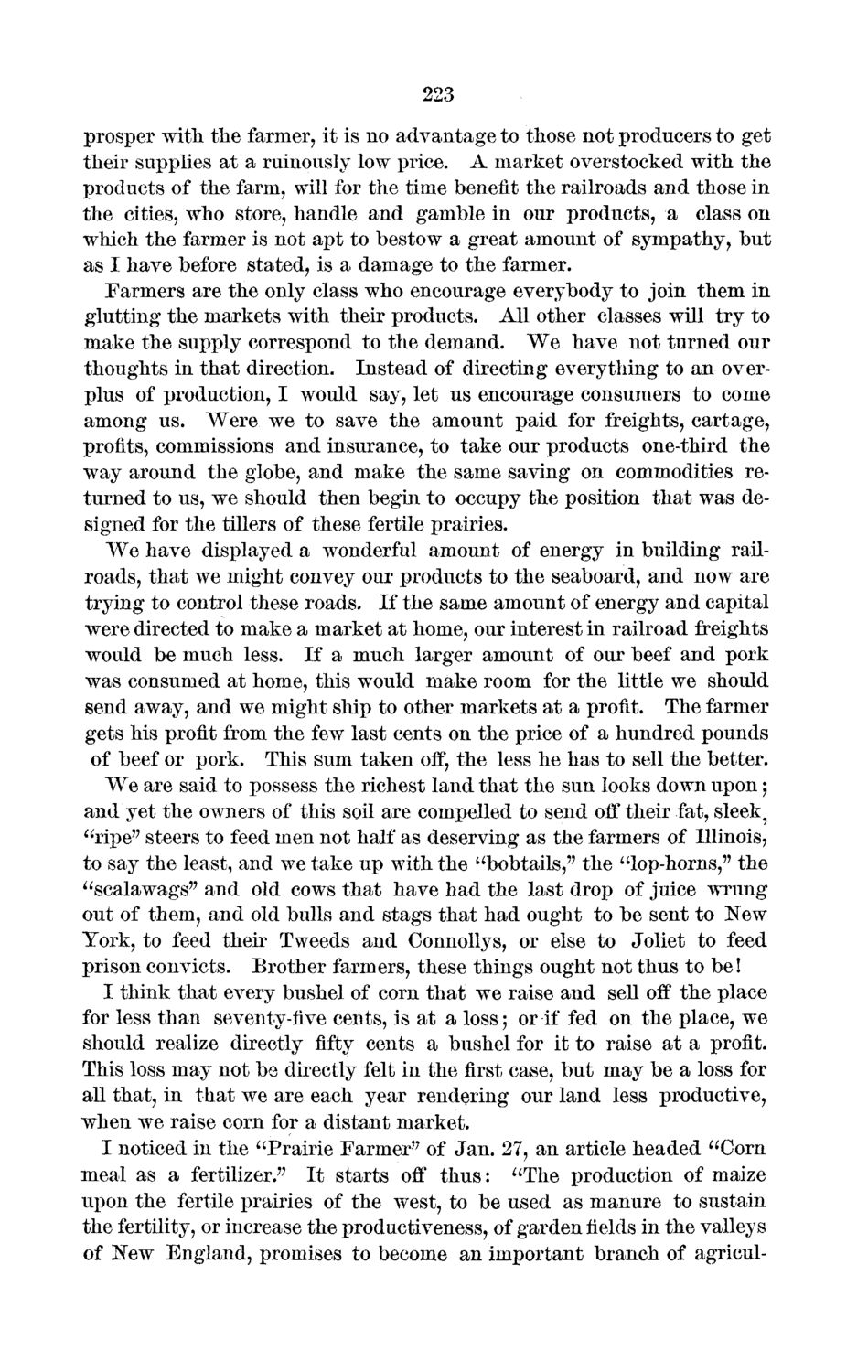| |
| |
Caption: Board of Trustees Minutes - 1872
This is a reduced-resolution page image for fast online browsing.

EXTRACTED TEXT FROM PAGE:
223 prosper with the farmer, it is no advantage to those not producers to get their supplies at a ruinously low price. A market overstocked with the products of the farm, will for the time benefit the railroads and those in the cities, who store, handle and gamble in our products, a class on which the farmer is not apt to bestow a great amount of sympathy, but as I have before stated, is a damage to the farmer. Farmers are the only class who encourage everybody to join them in glutting the markets with their products. All other classes will try to make the supply correspond to the demand. We have not turned our thoughts in that direction. Instead of directing everything to an overplus of production, I would say, let us encourage consumers to come among us. Were we to save the amount paid for freights, cartage, profits, commissions and insurance, to take our products one-third the way around the globe, and make the same saving on commodities returned to us, we should then begin to occupy the position that was designed for the tillers of these fertile prairies. We have displayed a wonderful amount of energy in building railroads, that we might convey our products to the seaboard, and now are trying to control these roads. If the same amount of energy and capital were directed to make a market at home, our interest in railroad freights would be much less. If a much larger amount of our beef and pork was consumed at home, this would make room for the little we should send away, and we might ship to other markets at a profit. The farmer gets his profit from the few last cents on the price of a hundred pounds of beef or pork. This sum taken off, the less he has to sell the better. We are said to possess the richest land that the sun looks down upon; and yet the owners of this soil are compelled to send off their fat, sleeky "ripe" steers to feed men not half as deserving as the farmers of Illinois, to say the least, and we take up with the "bobtails," the "lop-horns," the "scalawags" and old cows that have had the last drop of juice wrung out of them, and old bulls and stags that had ought to be sent to New York, to feed their Tweeds and Connollys, or else to Joliet to feed prison convicts. Brother farmers, these things ought not thus to be! I think that every bushel of corn that we raise and sell off the place for less than seventy-five cents, is at a loss; or if fed on the place, we should realize directly fifty cents a bushel for it to raise at a profit. This loss may not be directly felt in the first case, but may be a loss for all that, in that we are each year rendering our land less productive, when we raise corn for a distant market. I noticed in the "Prairie Farmer" of Jan. 27, an article headed "Corn meal as a fertilizer." It starts off thus: "The production of maize upon the fertile prairies of the west, to be used as manure to sustain the fertility, or increase the productiveness, of garden fields in the valleys of New England, promises to become an important branch of agricul-
| |